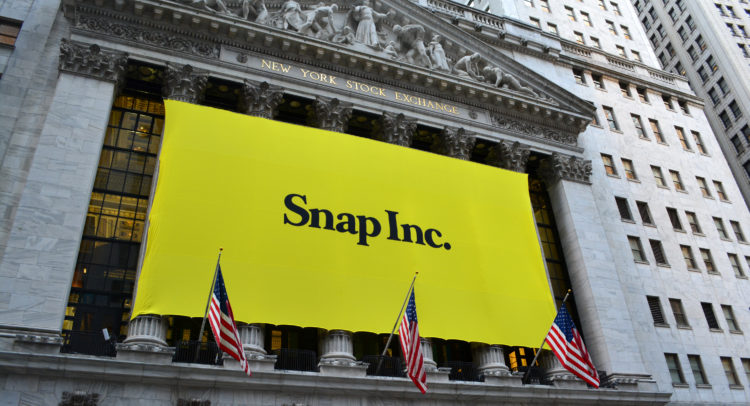Piper Sandler (PIPR) analyst Thomas Champion recently downgraded Snap (SNAP) stock to a Hold rating after the firm missed its first-quarter earnings target by 3 cents per share. According to Chapman, “Last week’s pre-announcement was indicative of deteriorating conditions.”
Maximize Your Portfolio with Data Driven Insights:
- Leverage the power of TipRanks' Smart Score, a data-driven tool to help you uncover top performing stocks and make informed investment decisions.
- Monitor your stock picks and compare them to top Wall Street Analysts' recommendations with Your Smart Portfolio
Snap isn’t well aligned for short-term success, and I’m bearish on the stock; here’s why.
Earnings Review
As mentioned, Snap recently missed its first-quarter earnings target. During the quarter, the company failed to maintain its five-quarter streak of more than 20% user growth as it settled at 18%.
Snap’s income statement embodies the modern economy. The company’s total revenue drawdown showcases the fact that ad revenue isn’t as easy to ascertain as it used to be. Ad revenue is quite cyclical, and the convergence of a more competitive social media space with declining enterprise spending is there for all to see.

Furthermore, Snap’s cash flows have also waned. The firm’s free cash flows dipped to $106 million from $126 million a year ago during the first quarter. Decreasing free cash flow indicates eroding intrinsic value for shareholders, meaning that the stock’s justified fair market value is also subsiding.
Market Headwinds
Snap is facing significant market-related headwinds. First of all, the firm is faced with a rising yield curve, which implies that interest rates will rise, in turn suppressing the equity markets and growth stocks in particular.
Furthermore, as things stand, market participants have succumbed to risk-aversion. Risk-aversion typically presents itself whenever the economy is heading for a contractionary phase. In turn, investors seek safe-haven assets that provide a lucrative real yield rather than growth stocks.
Hedge Fund Selling
Hedge funds clearly don’t see SNAP as a prospect. During the previous financial quarter, hedge funds sold a net 20.5 million shares of Snapchat, which is understandable considering the stock’s Sharpe ratio of -0.11. A negative Sharpe ratio implies that a stock possesses a poor risk/return trade-off, potentially scaring off many hedge funds due to their active trading mandates.

Following hedge fund strategies is beneficial if you’re an alpha-seeking investor. Hedge funds usually allocate capital with a short-term outlook. Thus, they identify price arbitrage ahead of the market.
Valuation
Despite its more than 65% year-to-date drawdown, Snap stock is still overvalued. Firstly, the stock is trading at a 5.37x its sales, implying that the market’s overhyped the company’s top-line prospects. Additionally, Snap is overvalued on a cash basis as it’s trading at 86.02x its cash flow.
Utilizing sales and cash flow metrics is a useful way of valuing growth stocks. This is because the metrics aren’t as vulnerable to volatility as most other price multiples and aren’t susceptible to aggressive accounting techniques. In addition, by observing sales and cash flow relative to price, an analyst can capture the stock’s value on both a cash and an accrual basis.
Insider Selling
Snap’s own management isn’t exactly showing signs of belief. TipRanks’ insider trading tracker indicates that its corporate insiders have sold $7.7 million worth of Snap shares during the past three months.
Insider trading conveys the company’s own belief in its financial prospects. Thus, with Snap’s very negative insider sentiment, it’s likely that the stock is set for a bearish period ahead.

Wall Street’s Take
Turning to Wall Street, SNAP Stock earns a Moderate Buy consensus rating based on 22 Buys, 6 Holds and 1 Sell rating assigned in the past three months. The average SNAP stock price target of $32.48 implies 124.15% upside potential.

Concluding Thoughts
Snap has been downgraded by Piper Sandler as the Wall Street investment bank believes that Snap stock is ill-equipped to succeed in these trying times. Furthermore, key metrics suggest that the stock is overvalued on a relative basis, and economic circumstances could present difficulty to Snap’s ad revenue business model.
Read full Disclosure









